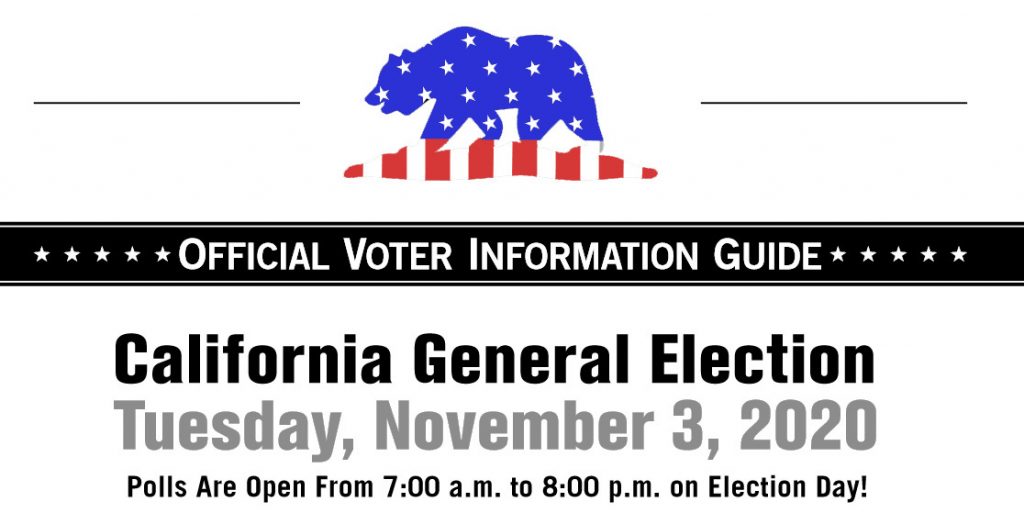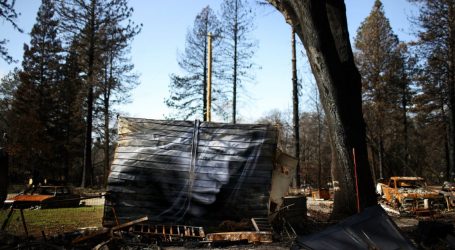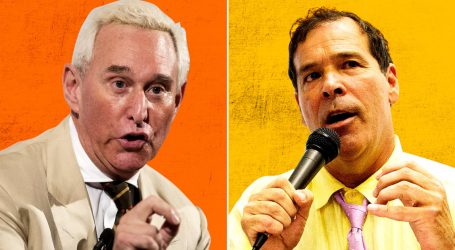A Short Guide to California’s 2020 Ballot Initiatives
California Secretary of State
For indispensable reporting on the coronavirus crisis, the election, and more, subscribe to the Mother Jones Daily newsletter.This is a special post for California readers. The rest of you may safely ignore it.
This year we have one bond issue and eleven initiatives on the California ballot (Propositions 14-25). As longtime readers know, my default position is to oppose all initiatives. Here’s the nickel version of a longer rant about this: (1) Most initiatives these days are funded by corporate interests, not the grassroots, and corporate interests don’t really need yet another avenue to work their will on the public; (2) generally speaking, laws should be laws, not constitutional amendments or initiative statutes, where they’re essentially etched in stone forever; and (3) ballot box budgeting is a curse. In a nutshell, this means that I have a high bar for supporting initiatives, so keep my biases in mind as you read this.
The full voter guide is here, in ten different languages. There’s sure to be one for you.
$5.5 billion stem cell research bond. NO. California voters approved a stem cell research bond in 2004 for no special reason except to thumb our noses at President Bush, who had cut funding for embryonic stem cell research a few years before. There’s never been any other serious justification for it, and it turns out that very few trials of embryonic stem cell research have ever been funded. That leaves non-embryonic stem cell research, but there’s no special reason that California should be funding that since it’s already well funded elsewhere. There’s really no good reason to throw more money at this program.
Creates split roll property tax for commercial buildings. YES. California’s famous Proposition 13 capped property taxes at 1 percent of assessed value and limited increases in assessed value to 2 percent per year—unless the property was resold. Upon resale, assessed value is reset back to market value. This has long been a sore point, since large commercial buildings are resold infrequently, and are thus able to keep their low assessed values nearly forever. Prop 15 would end this by assessing large commercial buildings at market value every year. That’s fair, and since an initiative is the only way to reform another initiative, this is the only way to accomplish it.
Allows state agencies to use affirmative action. YES. This would repeal Proposition 209, which banned the use of affirmative action in 1996. I have some issues with affirmative action, but I favor repealing Prop 209 because it should be an issue for the legislature, not the state constitution. However, it’s worth noting that even in the most liberal state in the nation, this initiative is way underwater in the latest polling. It’s highly unlikely to pass.
Allows felons to vote upon release from prison. YES. Oh hell yes.
Allows 17-year-olds to vote in primaries if they will be 18 by the time of the general election. NO. I can see the appeal of this, but honestly it seems kind of pointless and trivial. No matter what you do, the break point for voting will end up being arbitrary in some way or another, so why not just leave it at 18 and stop fiddling around?
Miscellaneous hodgepodge of tax increases. TOSSUP. This initiative raises property taxes on inherited property and then tries to hide its actual purpose by reducing property taxes on a few sympathetic groups (seniors, the disabled, victims of wildfires). On net, it would increase taxes, most of which would go to schools and firefighting. There are pros and cons here. On the one hand, taxing inherited property is hardly a huge injustice, so why not do it? On the other hand, California is already a high-tax state that has a bad habit of passing too many tax increases. On the third hand, this initiative comes from the legislature, and I’m always saying that we should leave stuff like this to them. I will probably vote no on this, but it’s mainly because I’m so annoyed by the cloyingly deceptive advertising. Still, it’s a weak no.
Increases penalties for certain minor crimes, primarily shoplifting. NO. I’m generally opposed to increasing penalties for anything since the United States already has insanely punitive sentencing policies. Beyond that, this is a weird initiative that’s primarily funded by supermarkets. But their problem isn’t shoplifting in general, it’s professional shoplifting rings. Current laws are probably sufficient for that kind of activity, and there’s no good reason to increase penalties for ordinary schmucks lifting a bottle of aspirin or whatever.
Allows local governments to enact rent control. NO. I’m not a fan of rent control, which mostly just protects people who stay in the same place for a long time. In any case, rent control is under the authority of the legislature and I favor leaving it there.
Repeals AB5, allowing companies Uber and Lyft to classify their drivers as independent contractors. NO. This is the big one, attracting untold millions of dollars in funding from rideshare companies. Here’s the background: In 2018 the California Supreme Court ruled that workers should be considered regular employees by default unless they meet all three prongs of a new “ABC test.” This forced the legislature to revise state employment law in light of the court ruling. They responded in 2019 with AB5, which put in place rules that essentially mandated that rideshare companies treat their drivers as regular employees, not independent contractors. This meant rideshare companies would have to pay for health insurance and unemployment insurance and so forth, which would drive up their costs substantially.
As it turns out, AB5 has had some unwelcome side effects. What’s more, I’m not sure I agree that rideshare workers should never be classified as contractors anyway. On the other hand, drivers are pretty clearly integral to the business of companies like Uber and Lyft, and integral employees of big companies should be treated as such. In the end, I consider this a close call, which means it should be left in the hands of the legislature, which is where it is now.
Requires physician or nurse to be present during dialysis treatment. NO. This was on the ballot in 2018 and failed, so now its supporters are trying again. But there was no good reason for it then, and there still isn’t.
Tightens California’s consumer privacy laws. NO. This is a tricky one. Prop 24 has some good features that would help consumers, but it also has some murky provisions that might hurt consumers. There are concerns, for example, that it might protect “pay for privacy” programs that allow the better off to enjoy better privacy protection than the working poor. The NAACP supports Prop 24, the local ACLU opposes it, and the EFF is neutral. It’s supposedly designed to close some loopholes in California’s 2018 privacy law, but I’m not sure it’s wise to do this after giving the law only two years on the books. If Prop 24 were clearer and better written I might consider voting for it even given its defects. In its current form, however, I’d vote no.
Referendum on law that replaced cash bail with one based on flight risk and public safety. YES. I don’t know if this experiment in ending the cash bail system will work, but I think it’s worth a try.





